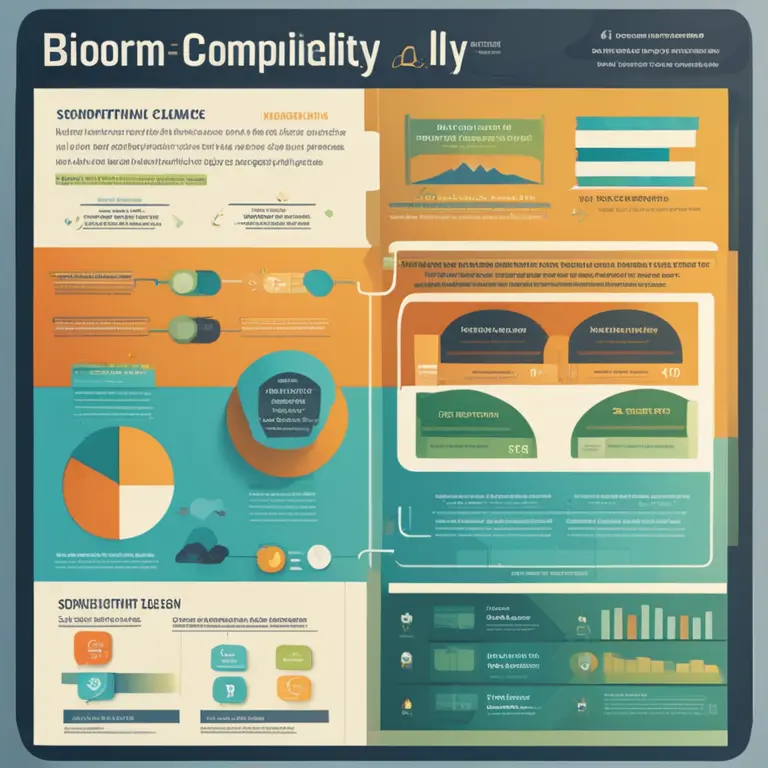
The Accuracy of Biorhythm Compatibility: Fact or Fiction?
Examine the reliability of biorhythm compatibility in forging meaningful connections. Is this method's precision fact or purely fictional?
article by Adrian Wallace
Biorhythm Basics: What You Should Know
To begin with, biorhythms are based on the idea that our lives are influenced by natural mathematical cycles. Advocates of this concept suggest that understanding these cycles can offer insight into individuals' physical, emotional, and intellectual states at any given time. It is a concept that dates back to the late 19th century, having gained momentum in the 1970s. Now, as we look at the contemporary acceptance of biorhythms, it's imperative that we consider how advanced algorithms and improved data collection may impact the validity of biorhythm compatibility judgements.

The Claim of Biorhythm Compatibility
Advocates of biorhythm compatibility posit that by aligning your personal rhythm with that of another, you can predict the success of your interpersonal interactions. This belief rests on the premise that certain days are more auspicious for these interactions based on where you are in your respective cycles. The question that arises in this domain is not whether these cycles exist — as they can indeed be calculated — but rather if their alignment truly correlates with compatibility and success in relationships.

Scientific Scrutiny and Opinions
Critics highlight the lack of empirical evidence to support the effectiveness of biorhythm compatibility. Mainstream science often categorizes biorhythm theory alongside other pseudoscientific beliefs that do not hold up under rigorous testing. Despite this skepticism, there remains a niche community that stands by the potential insights gained from biorhythm charts in the context of personal and professional relationships, potentially bolstered by anecdotal evidence.

Technological Advances and Data Analysis
The growing power of big data analytics and machine learning could theoretically enhance the precision of biorhythm compatibility predictions. With many people regularly inputting personal data into various platforms, the potential for more nuanced analysis of biorhythm data continues to expand. Arguably, with enough data and sophisticated algorithms, patterns might emerge that could give credence to certain aspects of biorhythm compatibility theories.

The Role of Belief and Perception
An important dimension to consider is the role of belief in the efficacy of biorhythm compatibility. If individuals believe that their interactions are influenced by biorhythms, this belief can affect their behavior and perception of others, effectively creating a self-fulfilling prophecy. This psychological aspect cannot be understated as it can greatly influence the perceived accuracy of biorhythm compatibility.
Perspective on Biorhythm Compatibility in Relationships
When it comes to relationships, biorhythm compatibility is just one of many factors that might be considered. Personal connection, shared values, communication, and mutual respect typically overshadow any potential influence of rhythmic cycles. Even if biorhythm compatibility does hold some sway, it would likely be a supplement to, rather than the foundation of, a relationship's success.
Conclusion: Biorhythm Compatibility's Place in Modern Life
To conclude, biorhythm compatibility's accuracy is still a topic of debate and remains supported more by personal belief than concrete scientific validation. As we navigate relationships in this modern age, it is more practical to consider an array of factors, rather than relying solely on the synchronization of inherent cycles. While the allure of biorhythm compatibility may persist, its role should be viewed in conjunction with a broader understanding of human interactions.
Published: 1/25/2024
Modified: 1/25/2024
More predictions
Come back here soon to learn more about yourself and your future


The Basis of Biorhythms: An Insight into Biological Cycles
Delve into the concept of biorhythms, the belief in rhythmic biological processes that purportedly influence human physiology and behavior.


Your Biorhythm Horoscope Handbook
Discover the intriguing intersection of biorhythms and astrology. Learn how tracking your biological cycles can provide insights into your physical, emotional, and intellectual well-being.


The Human Biorhythm Cycle: Patterns of Life's Ebb & Flow
Delve into the human biorhythm cycle, a compelling concept in the holistic understanding of our physiological and emotional patterns over time.